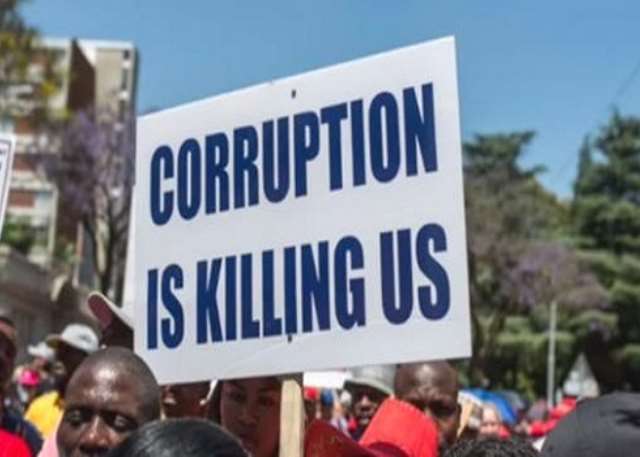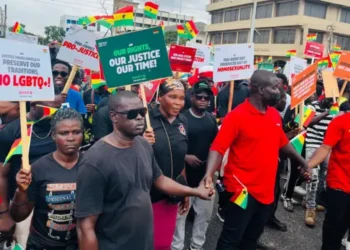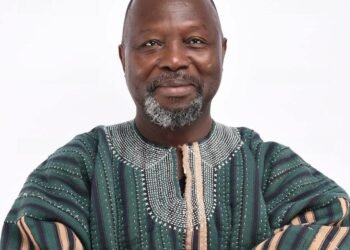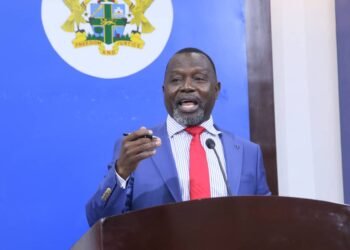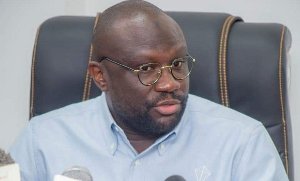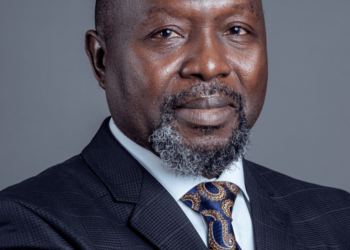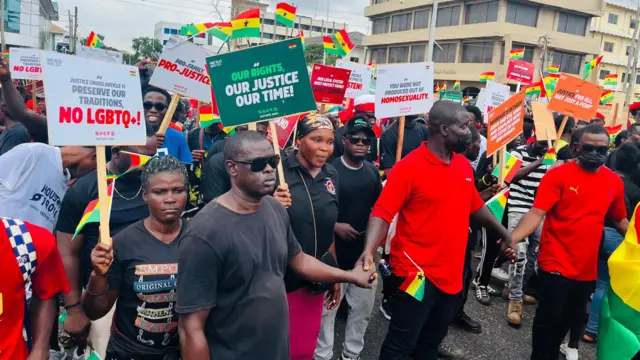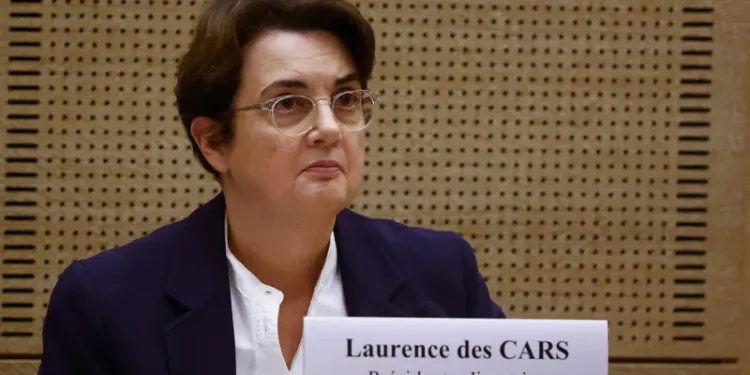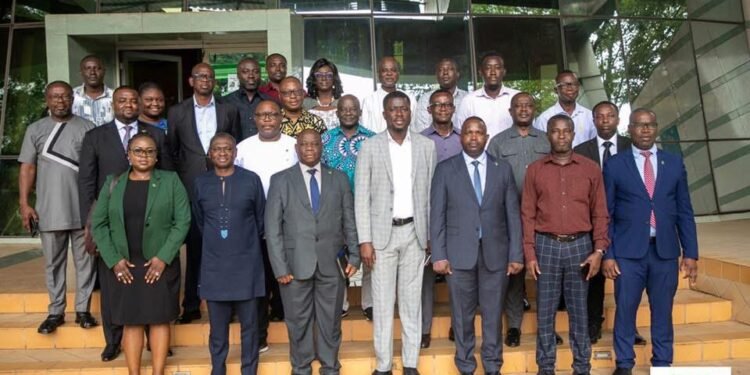Ghana’s anti-corruption narrative has long echoed with bold slogans and lofty promises, but real accountability remains elusive, according to constitutional scholar Prof. Stephen Kwaku Asare.
Commenting on the recent national anti-corruption conference, Prof. Asare delivered a blistering critique of what he called a legacy of unfulfilled commitments and political performances that have done little to curb entrenched corruption.
He lamented that the nation’s anti-corruption campaign has become a theater of empty declarations rather than a platform for institutional change.
“Since independence, we have proclaimed probity and accountability as national virtues. Yet ironically, every coup—from NLC to SMC II, from AFRC to PNDC—has been justified by the claim of fighting corruption.
“And what followed? Short-lived ‘house-cleaning’ exercises: assets seized, tribunals established, Makola bombed, some made to face firing squads.”
Prof. Stephen Kwaku Asare
Despite the establishment of over 40 commissions of inquiry after Kwame Nkrumah’s fall, the Auditor-General’s 1967 report still highlighted widespread abuse: no-bid contracts, unauthorized payments, inflated pricing, and forged quotations.

Prof. Asare pointed out that this same pattern persists, noting the uncanny similarities with present-day reports from the Auditor-General.
Midway through the 1969 transition, corruption’s grip was once again exposed when General Joseph Ankrah, head of the very regime that had promised reform, resigned after accepting $30,000 in illicit payments.
According to Prof. Asare, this incident signaled a sobering truth: “corruption had survived the coup and simply adapted to the new regime.”
Rhetoric Replaces Reform, Expert Warns
Fast-forward to the Fourth Republic, where “probity and accountability” are etched into the Constitution’s preamble, and yet they remain largely symbolic.
Prof. Asare asserted that anti-corruption efforts have become ritualistic. Stirring public pronouncements are often followed by quiet backroom compromises, and public trials rarely lead to real consequences for the politically connected.
He zeroed in on the current system of political party financing as a particularly corrosive force.
In his view, Ghana’s expensive electoral system has created an environment where wealthy financiers operate not as patriotic contributors but as investors expecting returns through state contracts, influence, and appointments.

“This is not democracy. This is patronage politics, and it is corrosive. It fuels a system where the cost of capturing power must be repaid—not to citizens, but to sponsors. Citizens, in this regime, become spectators.
“Grand corruption, by and large, has become invisible to those in power, even when it is displayed in full public view. Officials amass unexplained wealth. They flaunt it. They build mansions, buy fleets of luxury cars, and sponsor high-profile funerals and festivals.”
Prof. Stephen Kwaku Asare
Prof. Asare also raised concern about the normalization of unexplained wealth in Ghanaian public life.
The public may observe these displays silently, but many refrain from speaking out, fearing that accusations of corruption will be interpreted as attacks on party loyalty or tribal identity.
Even more troubling, Prof. Asare contended, is how prosecution is often seen not as a moral or legal obligation but as an act of betrayal.
In today’s political climate, it is not the theft that offends—it is the attempt to punish the thief. “The corrupt are no longer shunned. They are defended, celebrated, and recycled,” he said, highlighting a culture of impunity that has become entrenched.
He underscored the structural flaws within Ghana’s anti-corruption institutions.
Agencies like the Office of the Special Prosecutor, the Attorney General’s Department, CHRAJ, and EOCO are often under-resourced, fragmented, and sometimes in competition with each other.
He also pointed out that prosecutorial units lack the forensic expertise to track complex financial crimes. Judicial delays, procedural loopholes, and politicized interference further erode the public’s faith in accountability.
Bold Anti-Corruption Blueprint Unveiled
Offering a roadmap for real change, Prof. Asare called for bold institutional reforms.
These include enacting transparent political party financing laws, creating an independent public prosecution service, merging fragmented anti-corruption agencies into one multidisciplinary entity, and reforming court procedures to prevent abuse of delay tactics.
He emphasized the urgent need to recover stolen wealth. According to Prof. Asare, recovery is not merely justice—it is deterrence, and without it, reform rings hollow.
He proposed tracing and retrieving inflated contracts, offshore accounts, misallocated public lands, and sweetheart procurement deals.
However, he emphasized that prevention is even more essential, stressing the need to secure systems from the outset rather than merely pursuing wrongdoers after the fact.
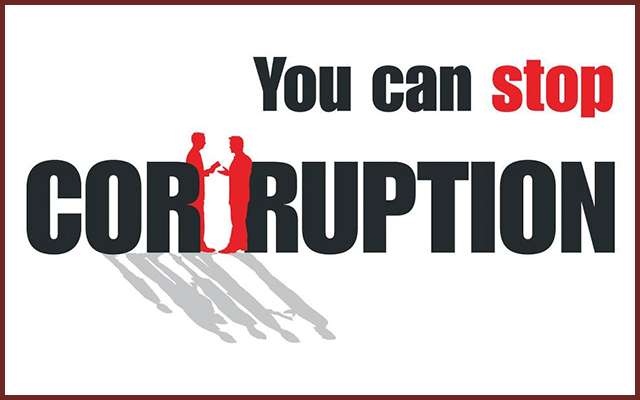
“This means: Digitizing procurement with full traceability; Publishing all contracts above a defined threshold; Empowering internal auditors with independence and protection; Curbing sole-source and emergency procurements; Normalizing lifestyle audits; Disallowing and surcharging by the Auditor-General; Protecting and rewarding whistleblowers.”
Prof. Stephen Kwaku Asare
Accordingly, Prof. Asare warned that without strong institutions, political courage, and citizen demand, anti-corruption talk will remain just that—talk.
“Corruption is not just a moral lapse. It is a policy choice,” he said, underscoring that legal loopholes, weak enforcement, and cultural silence have kept the door wide open to abuse.
He emphasized that accountability in Ghana should no longer be reduced to a mere display of political theater or symbolic gestures.
Instead, he urged that it be recognized and addressed as an urgent national crisis requiring immediate and sustained action.
In his view, the country must shift from performative declarations to implementing real, enforceable measures that prioritize justice and transparency across all levels of governance.
READ ALSO: Tulenkey Confident on Winning an Award at the 2025 TGMA



